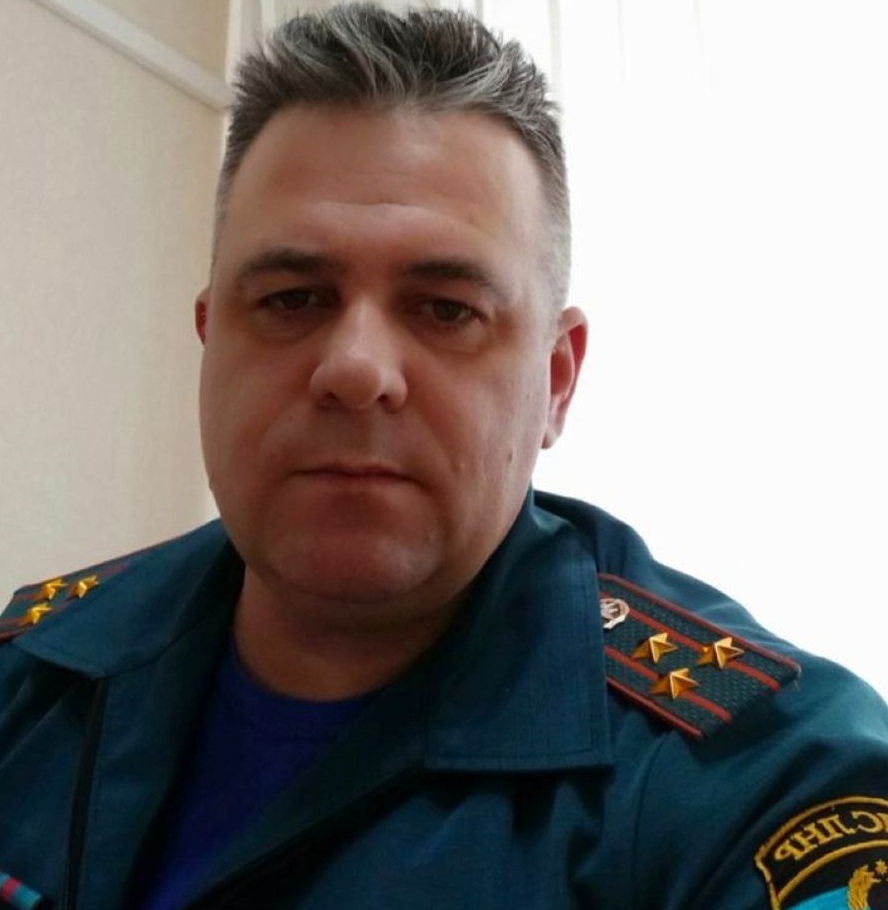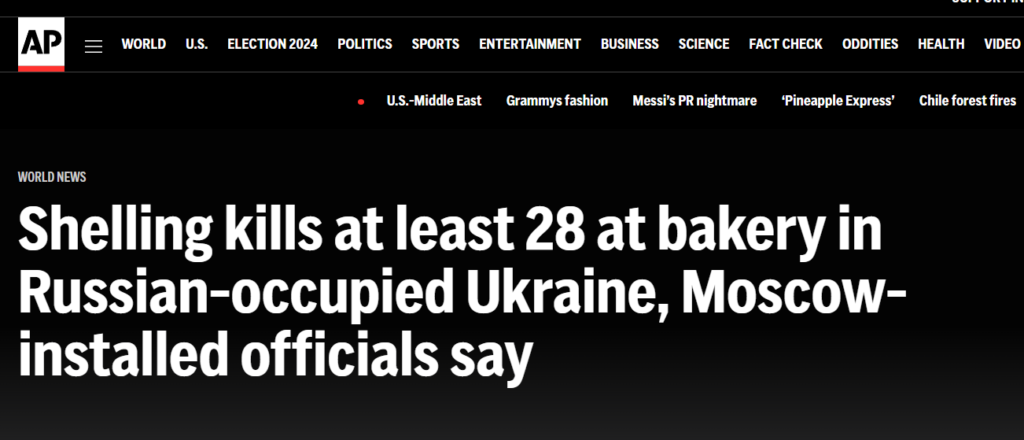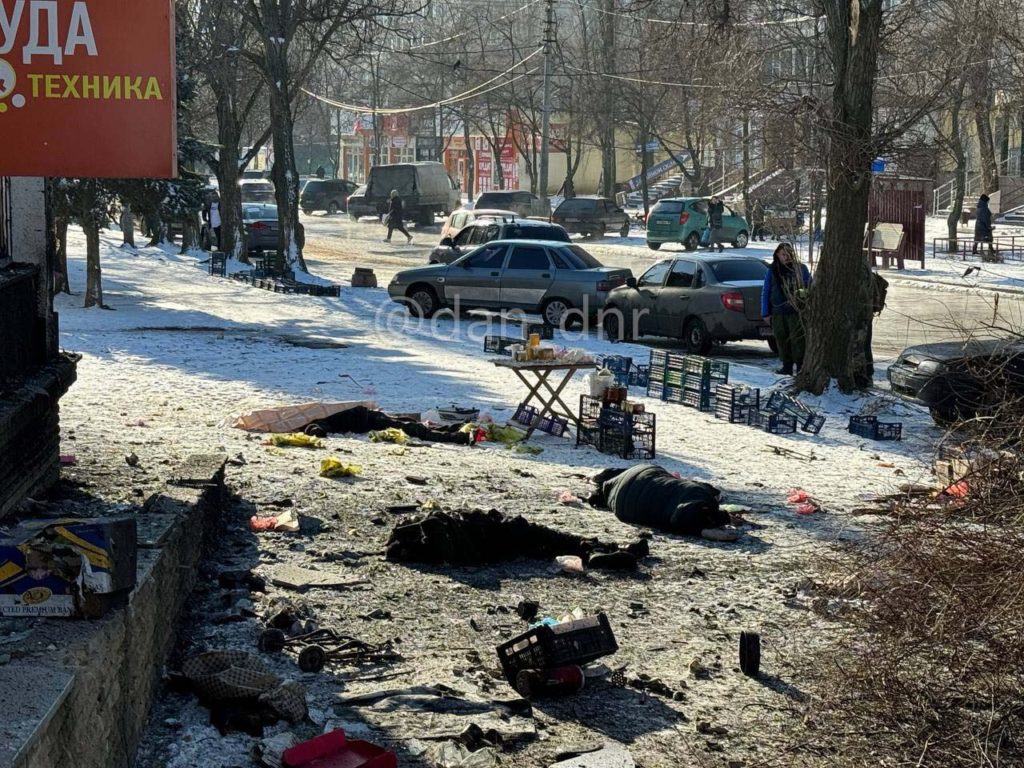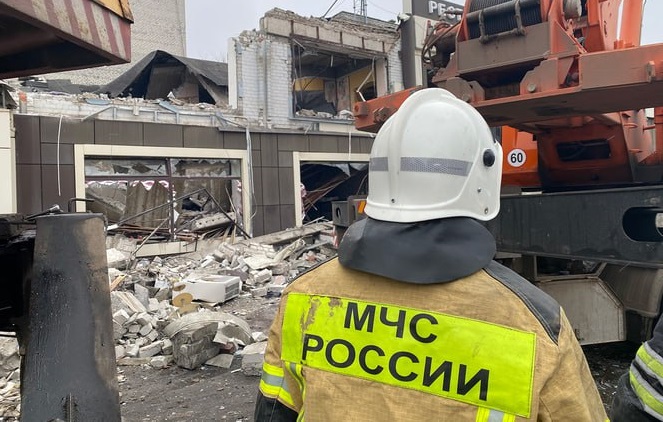These days, a notable information case occurred in Western media outlets such as the BBC, The Guardian, Euronews, the Associated Press, AFP, and Bloomberg – which picked up a fake news story from Russian propaganda accusing the Ukrainian forces of killing civilians in a bakery in Russian-occupied Lysychansk, Luhansk Oblast. However, as it turned out, the location was actually a restaurant with Russian occupiers inside.

On 3 February, Lysychansk was hit by a strike, likely from the Ukrainian army, after which the Russian-installed authorities reported 28 civilian deaths.
Russian propaganda did everything it could to portray the Ukrainian military as murderers of innocents. They claimed that the Ukrainian forces shelled a peaceful “bakery,” killing at least one child. The death toll grew by the hour as the Russian Foreign Ministry demanded “immediate unconditional condemnation” from international organizations.
Two days later, it became clear that as a result of the strike, at least one high-ranking occupier was killed: the “minister of emergency situations” of the Russian proxy Luhansk People’s Republic (LNR), Aleksei Poteleshchenko.

It is also highly likely that other collaborators were killed along with Poteleshchenko, including local “deputies” and “security officials” who were celebrating the birthday of one of their own at the “Adriatic” restaurant.
Despite similar situations happening before, Western media picked up on the Russian propaganda, spreading fake news on social media about a “strike on civilians,” a “strike on a bakery,” and a “baker’s birthday celebration.”
Euromaidan Press tried to get to the bottom of why this happened.
Kremlin cronies killed together in Lysychansk strike
Despite the initial claims of purely civilian casualties, Russian media have now confirmed the death of Aleksei Poteleshchenko, who served as the LNR “minister of emergency situations.” Prior to 2014, when Russia propped up the proxy Donetsk and Luhansk “People’s Republics” (“DNR,” “LNR”) in eastern Ukraine, Poteleshchenko held senior regional roles in Ukraine’s State Emergency Service. However, he later acquired Russian citizenship and, after initially serving with the “LNR’s People’s Militia,” he ascended to lead the “LNR Emergency Ministry” in 2023.
However, it is likely that he was not the only occupier killed in the strike on Lysychansk.
Ukrainian journalist Denis Kazanskyi, after analyzing posts by Russian propagandists, discovered that at the time of the strike, Poteleshchenko was at the local “Adriatic” restaurant celebrating the birthday of another occupier, “LNR deputy” Ivan Zhushma, who also died. It was not a bakery that was hit, as initially falsely claimed by Russian propaganda outlets, but rather a restaurant where they were likely drinking. Additionally, there were numerous “security officials” present at the occasion who probably did not survive either.

How Russian propaganda fabricated a “monstrous terrorist attack”
Despite intelligence leaks revealing the truth quickly, Russian propaganda media and TG channels portrayed Ukraine’s forces as civilian killers. They falsely claimed the strike hit a bakery, murdering 28 non-combatants – 18 men, 9 women, and a child.
Russian propaganda worked in concert:
- Continuous reports emerged of first responders digging through rubble and inflated victim counts;
- The Russian-installed authorities of occupied Lysychansk denounced Ukraine’s “attack on civilians” and declared mourning;
- Putin’s press secretary Peskov called the strike a “monstrous terrorist attack,” justifying Russia’s ongoing “special military operation” in Ukraine to prevent further such incidents;
- Russian propaganda relayed these narratives across social media, spreading the disinformation online.
Western media’s take on the “bakery attack”
Despite video and photos clearly displaying the “Adriatic Restaurant” sign at the strike location, many Western outlets still repeated Russia’s false bakery claims. This included the BBC, the Guardian, Euronews, Associated Press, AFP, and Bloomberg – even though some employ editors with Eastern Europe expertise.

The term “bakery” stirs connotations of a peaceful place with harmless customers, unlike a restaurant hosting enemy collaborators. So Western audiences may associate the event with Ukraine killing innocents in Lysychansk, precisely the manipulation Russian disinformation intended.

Further clarifications revealing occupier officials congregated at the restaurant will likely vanish in the fog of war. The initial falsified bakery narrative achieved the propaganda’s aim despite evidence exposing the deception.

Why did this happen?
However, Western media should not shoulder full blame. At the time of this article’s publication, Ukrainian military authorities have not released any official comment about the Lysychansk strike. No unofficial insider reports emerged either for Western journalists to potentially reference. The Ukrainian side offered total silence – only isolated social media discussions in Ukrainian that foreign outlets realistically cannot access.
The propaganda chorus also enlisted typically trusted Russian sources like BBC’s Russian service and independent outlet Meduza, both propagating the bakery misinformation. This further demonstrates that regardless of any liberal pretenses, it’s important to approach Russian media with skepticism rather than unquestioning trust.

Learning from mistakes
It’s not easy to avoid spreading Russian propaganda. Even experienced Ukrainian editors sometimes fall for it. But being critical of what Russian sources say and trying to confirm things from different angles helps a lot.
Just two weeks ago, Russians accused Ukraine without evidence of shelling a market in Russian-occupied Donetsk, resulting in 28 deaths. The Ukrainian military stated they were not involved. Despite Ukraine’s denial of involvement, Russia convened a UN Security Council meeting over the Donetsk shelling to peddle their propaganda. As the real and information wars continue, the West must remain vigilant — these baseless accusations will likely persist in Russia’s attempt to turn Western media into mouthpieces.

In the case with occupied Lysychansk, some blame also lies with the Ukrainian military media team. They were totally silent, which let Russia’s false story about the strike spread widely with no counter facts.
The Ukrainian media officers should think about this for the future. They need to speak up faster to dispute Russian lies before those narratives flood the news.
Read more:
- Strike on Russian-held Lysychansk kills 28, top-ranking Russian military might be dead
- Russian war propaganda: strategic/tactical narratives, and their audiences
- Report: Western media underestimate Russian propaganda’s effectiveness
- 25 dead in occupied Donetsk shelling: Russia blames Ukraine, but is it true?




